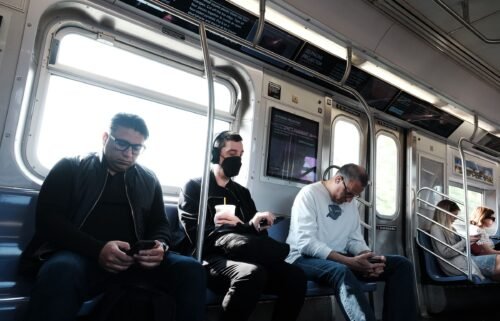US racial inequality just as deadly as Covid-19 if not more, report suggests

Even amid a pandemic, life expectancy among White people in the United States far exceeds what Black people have experienced every year, according to new research.
The research, published in the journal Proceedings of the National Academy of Sciences on Monday, used national life expectancy data and demographic models to estimate how many White deaths from Covid-19 would be needed for the White death rate in 2020 to reach the levels of the year with the lowest Black death rate ever recorded, which was in 2014.
The paper included data on Covid-19 deaths as of July 29, Elizabeth Wrigley-Field of the University of Minnesota Department of Sociology, who conducted this research, told CNN.
“In 2014, the year of the lowest Black mortality ever recorded, age-adjusted Black mortality was about 1,061 per 100,000. In 2017 (the most recent year with final death estimates), U.S. white age-adjusted mortality was 899 deaths per 100,000,” Wrigley-Field wrote in an email.
“White Covid-19 age-adjusted mortality is currently about 28 deaths per 100,000,” she wrote. “Thus, US white deaths including Covid are still well below the best that Black mortality has ever been.”
Dr. Olubukola Nafiu was not surprised.
“The overarching conclusion is that ‘the more things change, the more they remain the same,'” Nafiu, an associate professor of pediatrics and anesthesiology and vice chair of academic affairs and research at Nationwide Children’s Hospital in Ohio, said in an email.
Nafiu, who wasn’t involved in the study, was referring to how the racial inequality that leads to health disparities has remained — despite the coronavirus pandemic.
The new research finds that hypothetically, 400,000 more White people would have to die to equal the lowest death rate ever recorded among Black people. That estimate of excess deaths is about 5.7 times the confirmed deaths from Covid-19 among Whites as of July 29, according to the paper.
“These estimates make it plausible that, even in the COVID-19 pandemic, White mortality will remain lower than the lowest recorded Black mortality in the United States,” Wrigley-Field wrote in the paper. “If fewer than 400,000 excess White deaths occur in 2020, the COVID-19 pandemic for Whites will be less consequential to overall White mortality than racial inequality is for Black mortality every year.
“And unless 2020 sees 700,000 to 1 million excess White deaths—a 31 to 46% mortality increase from recent years—life expectancy for Whites, even amid COVID-19, will remain higher than it has ever been for Blacks,” Wrigley-Field wrote. “In reality, COVID-19 deaths themselves are highly disproportionately experienced by Black Americans and will almost certainly further widen the racial mortality gap.”
Wrigley-Field added, “If Black disadvantage operates every year on the scale of Whites’ experience of COVID-19, then so too should the tools we deploy to fight it.”
Although knowledge about racial disparity in death rates is not unknown, people should keep in mind that these estimates are from statistical modeling and therefore might fall short of reality, but are still useful, Nafiu said.
Several potential reasons for the health disparities among Black and White people have been described, he added: The gaps between races in regard to socioeconomic status, access to care, insurance status, hospital quality and experience with provider bias and discrimination are a few.
“Regarding mortality during a pandemic,” Nafiu continued, “Black and other minorities are more likely to be frontline workers and often do not have the option of staying at home.
“This brief report is another clarion call to America that some of her children are dying at a disproportionately higher rate than others and like all nurturing mothers, America needs to swing into action to provide for and protect all her own.”




